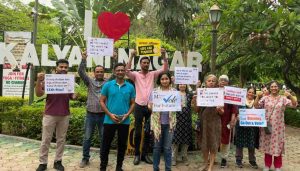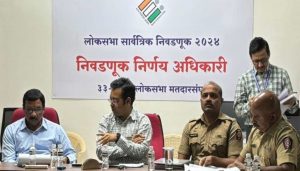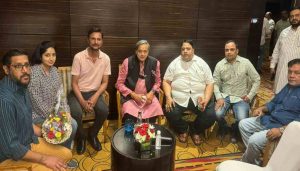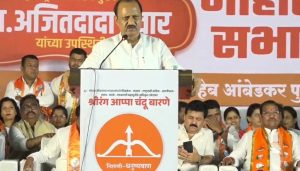Supreme Court Constitutional Bench Grapples With Article 370 Abrogation Controversy
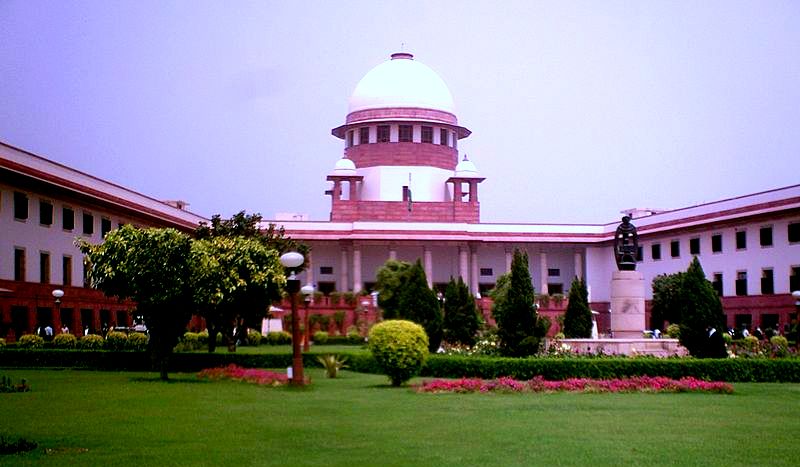
New Delhi, 13th August 2023: A Constitutional Bench of the Supreme Court, led by Chief Justice of India DY Chandrachud, has been consecutively addressing a series of pleas contesting Article 370 of the Constitution has been revoked as of August 2, except Mondays and Fridays. This Bench consists of the five most senior judges of the apex court, namely CJI DY Chandrachud, Justices Sanjay Kishan Kaul, Sanjiv Khanna, B.R. Gavai, and Surya Kant.
Numerous petitions have been submitted by political parties, private individuals, lawyers, and activists, challenging the presidential order that revoked the special status of the former state of Jammu and Kashmir and the subsequent division of it into two Union Territories. The core argument put forth so far revolves around the notion that Article 370 of the Constitution has obtained a permanent character following the dissolution of J&K’s constituent assembly. However, the Constitution Bench has expressed scepticism about this claim and even remarked that “it is difficult to assert that Article 370 is inherently permanent and cannot be repealed.”
The Bench requested the petitioner side to consider a hypothetical scenario where the former state itself sought the application of all provisions of the Indian Constitution to its territory. Furthermore, it has been contended that the concept of federalism inherent in Article 370 cannot be revoked by any action taken by the President or Parliament.
The Bench has also noted that the surrender of sovereignty by Jammu and Kashmir to India was not contingent but an absolute and complete transfer, vesting exclusive sovereignty in India. Chief Justice Chandrachud emphasized that provisions in the Constitution requiring the agreement of states do not inherently undermine the sovereignty of the Indian Union. The Constitution of Jammu and Kashmir itself states that the state is an integral part of the Indian Union.
Senior advocate Kapil Sibal, representing J&K political leader Akbar Lone, stated unequivocally at the outset of the hearing that the integration of Jammu & Kashmir with India is, was, and always will be beyond question. However, Sibal’s suggestion of a Brexit-like referendum was not well-received by the Bench or the general public.
Another line of argument before the Supreme Court asserts that the Jammu and Kashmir Constitution of 1957 lacks a provision for altering the special status of the region. Despite this, the petitioners have conceded that the Indian Constitution holds superiority over the two.
The question of whether Parliament’s assumption of the state legislature’s role in recommending the alteration of Article 370 and the division of the state into two Union Territories has been vigorously debated. The petitioners argue that there is a distinction between “constituent power” and “legislative power,” with a Legislative Assembly unable to transform into a Constituent Assembly.
The petitioners caution that equating the two could have dire consequences, allowing Parliament to dismantle the basic structure of the Constitution. Chief Justice Chandrachud clarified that while Parliament amends the Constitution, it does not do so as a Constituent Assembly but rather exercises constituent power within the Constitution’s confines.
The term “temporary provisions concerning the State of Jammu and Kashmir” in Article 370 has been cited by the Centre to justify its abrogation. However, the petitioners assert that the word “temporary” holds minimal significance in interpreting a legal provision, pointing to previous Supreme Court rulings.
In summary, the petitioners contend before the Supreme Court that the process the Centre employed to revoke Article 370 is not by the law. The Court will continue to hear arguments from the petitioners before inviting the Centre to present its oral submissions in defence of its actions.
The Centre, in its written submissions, has defended the abrogation of the special status by claiming that it has led to unparalleled development, progress, security, and stability in the region. The Union Home Ministry has also noted that instances of orchestrated violence have drastically reduced.
The intervention applications by Kashmiri Pandits and their organizations, although not entirely independent, lend support to the Centre’s position. The ongoing proceedings in the Supreme Court are expected to culminate in a historic decision that will significantly impact the country’s con
stitutional landscape.




